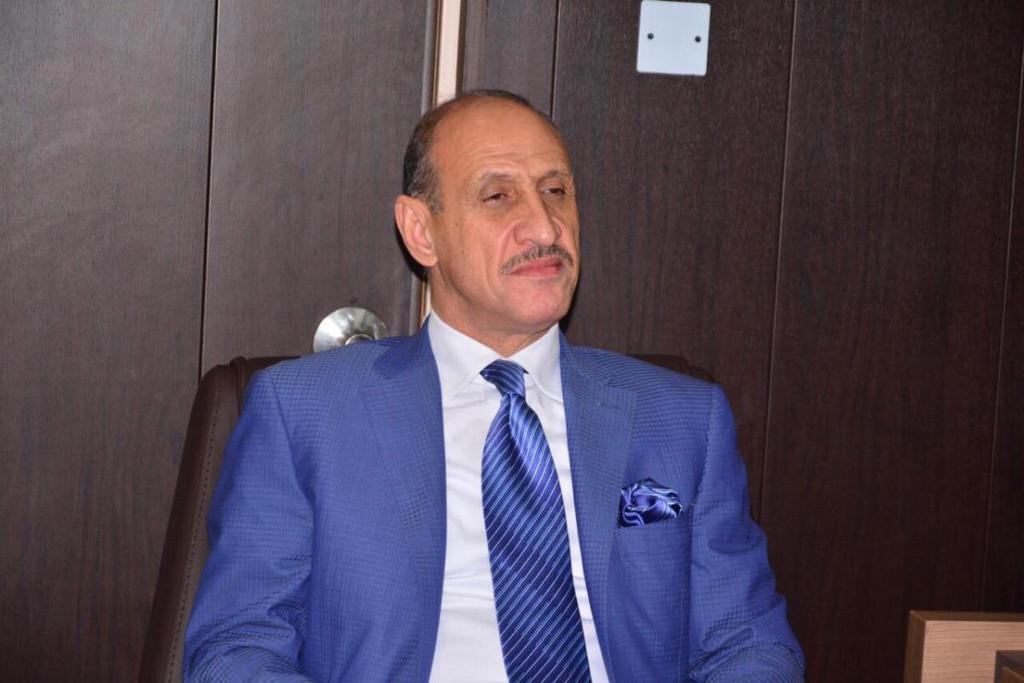By Paul Nicholson
February 14 – This is a big week for Iraqi football. On Wednesday FIFA announced a normalisation committee would take over the running of the game in the country. This weekend the Iraqi Premier League will restart play after a period of suspension due to political situation and safety fears.
FIFA’s intervention into the Iraq FA (IFA) has generally been welcomed by the wider Iraqi football community following a long period of instability, distrust of officials, rigged elections for IFA president, and legal cases brought against the IFA that eventually precipitated the resignation of its president standing executives.
A catalyst for the change has been former national team playing legend Adnan Dirjal (pictured) who entered the election for the president of FA position but was told his paperwork was incomplete and was disqualified from standing.
Dirjal, capped 121 times for Iraq before going into coaching, including a spell in charge of the national team, had returned to the country after an on-off 10-year period of coaching Qatar’s Al Wakrah.
Having gathered significant support from stakeholders in Iraq, Dirjal looked set to become the new president, a move that would have removed increasingly unpopular incumbent Abdul Khaliq Masoud, who had been president since 2014 and a senior member of the IFA since 2004. Even without Dirjal, the IFA failed to constitute a quorum at its congress with only 52 of 120 voting members attending, such was the level of discontent in the country.
Having been removed from participating in the election, Dirjal took his complaints over the election rigging and other financial and governance issues to local courts and the Court of Arbitration for Sport (CAS). The result of the first court hearings was that in Iraqi two of the IFA executive, including the former general secretary, received jail sentences.
The IFA executive then approached Dirjal saying that if he dropped his legal cases against them they would step down, rather than face the risk of prison. In September last year they resigned en masse.
FIFA in its notification of the normalisation committee for Iraq said that it would take over the running of the IFA’s daily affairs, “review the IFA Statutes and, if needed, revise them to ensure their compliance with the FIFA Statutes; and organise and conduct elections of a new IFA Executive Committee for a four-year term.”
Dirjal, having sparked the overthrow of the old IFA regime, will not be part of the normalisation committee as he is likely to stand for the presidency of the association – normalisation committee members are not allowed to stand for election. FIFA said it expected the elections to be held within six months.
Iraqi Premier League returns to action
This weekend a slimmed down Iraqi Premier League returns to play after being suspended in October last year following political unrest in the country and fears for crowd safety – even the smallest teams in Iraq attract passionate support of 3,000 plus fans attending matches.
Al-Zawraa (Iraq’s most storied club with 14 league titles) and Al-Talba will restart the action at the 50,000 capacity Al Shaab national stadium in Baghdad.
As part of an Iraqi Premier League restructure, the league has been reduced by five teams to 15, who for the remainder of this season will play in a single round-robin tournament. The results from the season played from September to October have been annulled with the decision taken not to have relegation this year.
Iraq has been a country of successive new dawns and new hope. Its football federation is similarly taking the first steps into a new era. In 2007 the country won the Asian Cup and was ranked 39th in the world by FIFA. In 2015 Iraq came fourth at the Asian Cup. It has a football community that expects big things. The matches this weekend could be a symbolic step back along that path.
Contact the writer of this story at moc.l1734839102labto1734839102ofdlr1734839102owedi1734839102sni@n1734839102osloh1734839102cin.l1734839102uap1734839102


